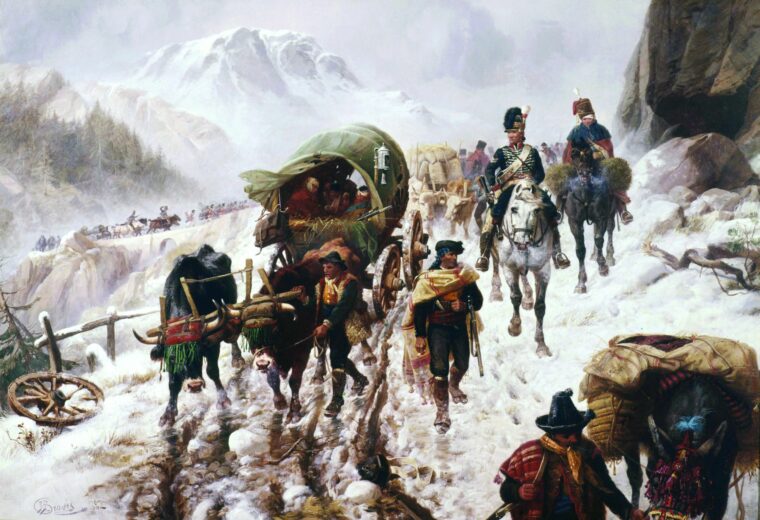
Napoleon Bonaparte
Dismal British Retreat to Corunna
By Eric NiderostIt was December 1808, and the French Army was struggling though the 4,500-foot Sierra de Guadarrama Mountains in central Spain. Read more

Napoleon Bonaparte
It was December 1808, and the French Army was struggling though the 4,500-foot Sierra de Guadarrama Mountains in central Spain. Read more
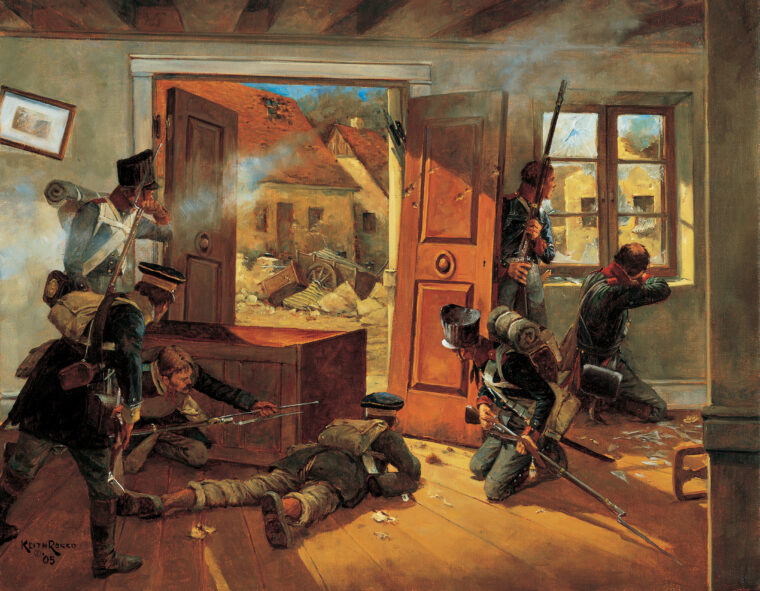
Napoleon Bonaparte
At 2:30 am on June 15, 1815, tens of thousands of French soldiers around the town of Beaumont, France, were roused from their bivouacs. Read more
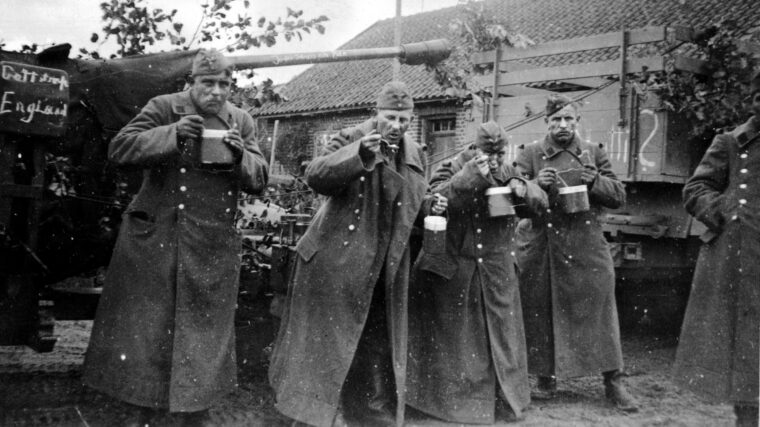
Napoleon Bonaparte
It was Napoleon Bonaparte who purportedly said, “An army travels on its stomach.” Toward the goal of feeding his particular army’s stomach more efficiently, in 1795 the French general came up with an interesting solution to the problem. Read more
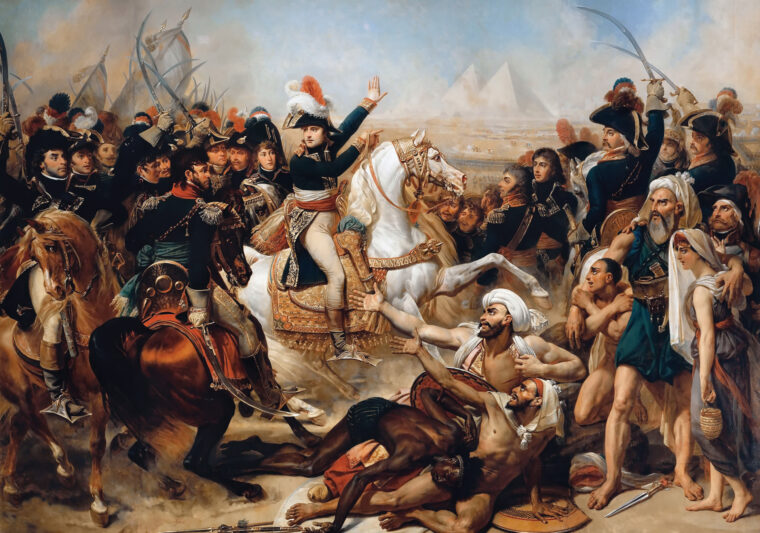
Napoleon Bonaparte
In May 1798 English spies in Toulon, on the French Mediterranean coast, stood aghast at the gathering of an invasion fleet three times the size of the Spanish Armada: 13 ships of the line, 40 frigates and smaller warships, and 130 cargo vessels bearing more than 17,000 troops, 700 horses, and 1,000 cannons. Read more
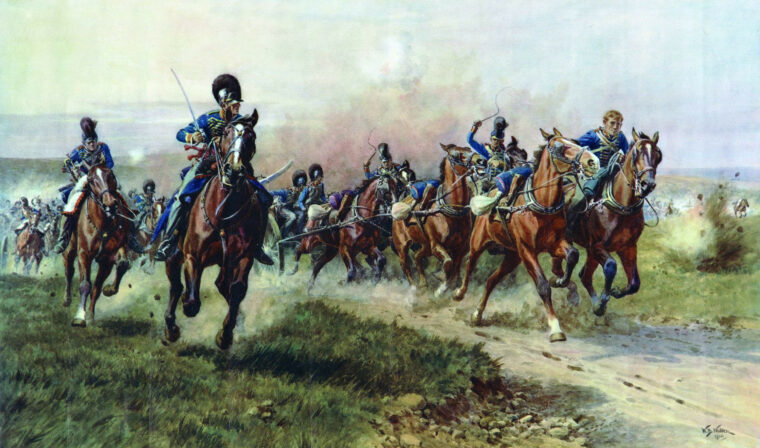
Napoleon Bonaparte
It had been a brutal winter for the French Army of Portugal. War and hunger had haunted the occupiers, causing their number to dwindle by the thousands. Read more
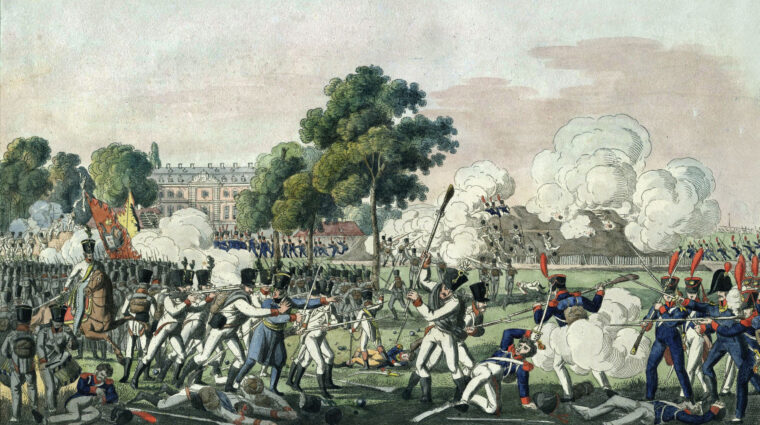
Napoleon Bonaparte
Marshal Gouvion Saint-Cyr was in a tight spot, and he knew it. It was the morning of August 26, 1813, and Saint-Cyr and his French XIV Corps were defending Dresden, the capital of Saxony, from a large and menacing Allied army that outnumbered his own by at least four to one. Read more
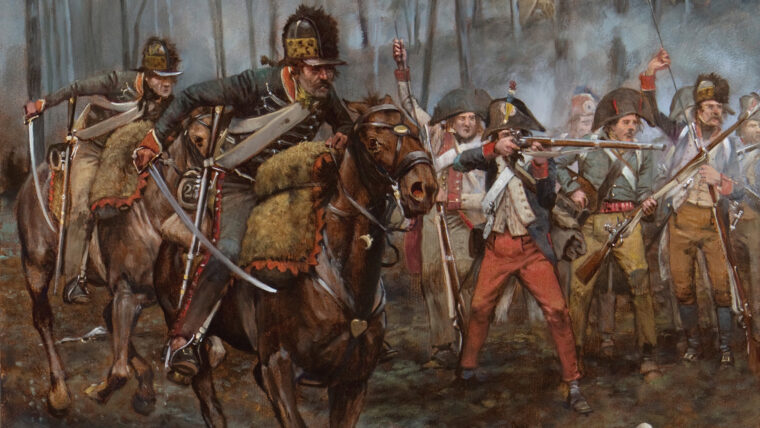
Napoleon Bonaparte
Barthélemy Schérer, commander of the French Army, gazed at the new military orders from Paris in disbelief. The grandoise strategy, detailing an advance on three fronts with the armies uniting in Tyrol for a concentrated thrust at Vienna, were far beyond the capabilities of the starving southern army he commanded along the French Riveria against the combined forces of Austria and Sardinia. Read more
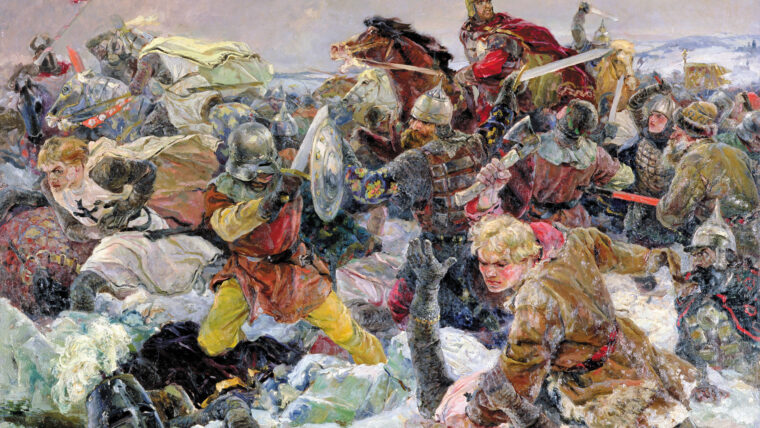
Napoleon Bonaparte
In 1242, Russian Prince Alexander Nevsky faced the armored might of the Teutonic knights. Generals Alexander Suvorov and Peter Kotlyarevski were Napoleon’s contemporaries, while General Mikhail Skobelev exemplified the panache of the Victorian Era. Read more
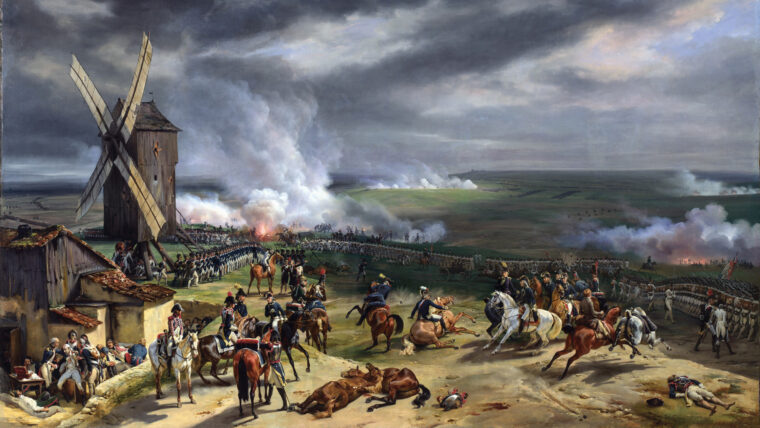
Napoleon Bonaparte
Wind lifted away the fog sheltering the French lines. Atop a low ridge where the French army was deployed, a lone windmill provided a vivid range marker for 58 Prussian cannons on the neighboring hills. Read more
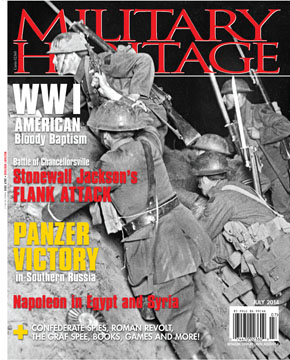
Napoleon Bonaparte
As the fateful day drew to a close, the exhausted World War I soldiers of the German 25th and 82nd Reserve Divisions huddled in their trenches. Read more
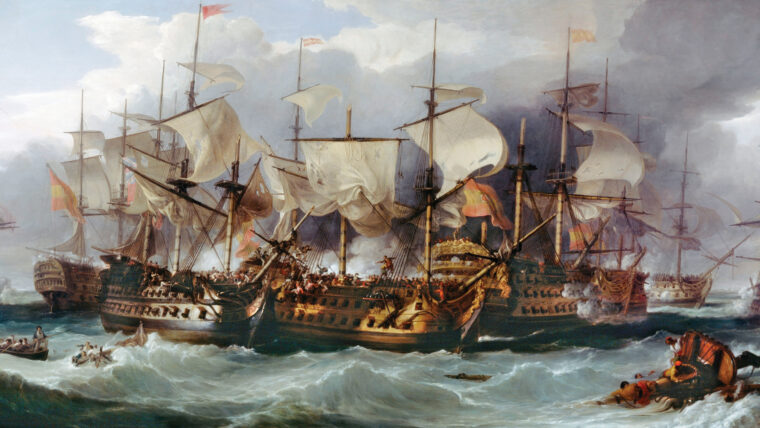
Napoleon Bonaparte
On the morning of February 14, 1797, the four-decked, 136-gun Santisima Trinidad of Spain’s Armada Real claimed the title of the world’s most powerful warship. Read more
Napoleon Bonaparte
On the foggy morning of November 30, 1808, Napoleon Bonaparte, Emperor of France, watched impatiently as his Grande Armée lumbered up the rocky slopes of the Sierra de Guadarrama Mountains of central Spain. Read more
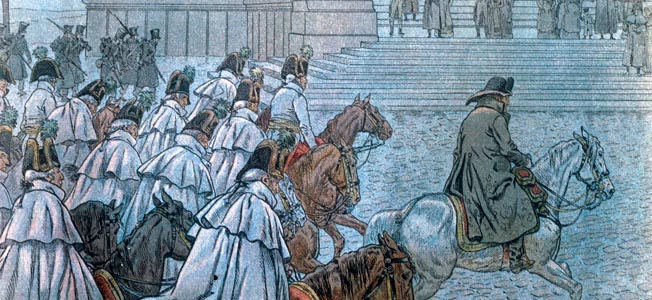
Napoleon Bonaparte
Napoleon had occasional health problems before 1810. He seems to have experienced seizures one or two times, episodes that resembled epilepsy, although most medical historians feel that he did not have the disease—at least not a classic version of it. Read more
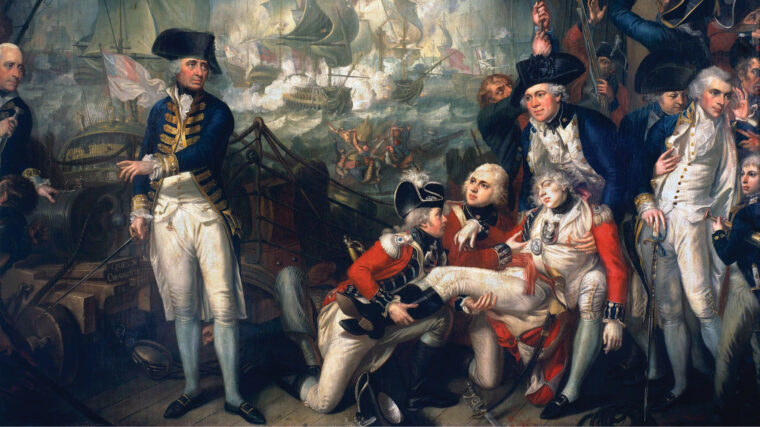
Napoleon Bonaparte
British Admiral Lord Richard Howe, standing on the quarterdeck of his 100-gun ship of the line Queen Charlotte, snapped his signal book shut on the morning of June 1, 1794. Read more
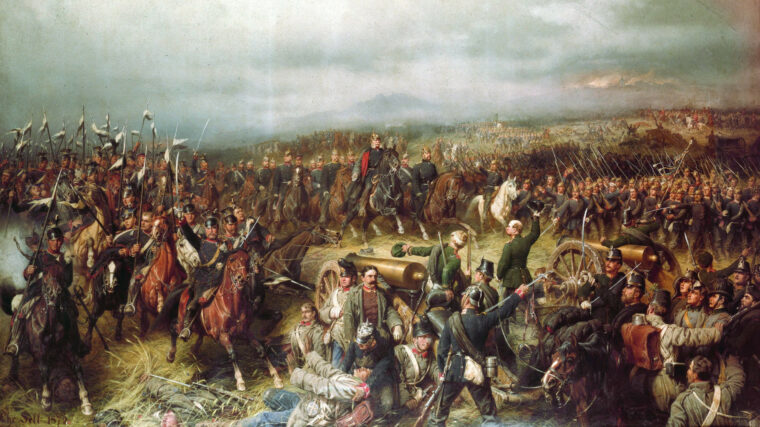
Napoleon Bonaparte
The Prussian soldiers had been awake long before sunup on the morning of July 3, 1866, and were marching downhill to the Bystrice River in the rolling countryside of Bohemia, 65 miles east of Prague. Read more
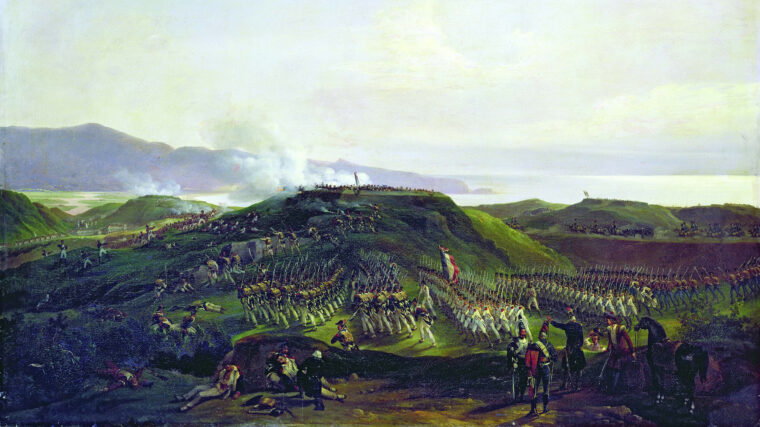
Napoleon Bonaparte
Wind billowed and waves crashed onto the deck of the massive 120-gun French flagship L’Ocean. From a window in his quarters, Captain General Charles Victor Emmanuel Leclerc studied the vast flotilla as it plowed through the lapping foam of the Atlantic. Read more
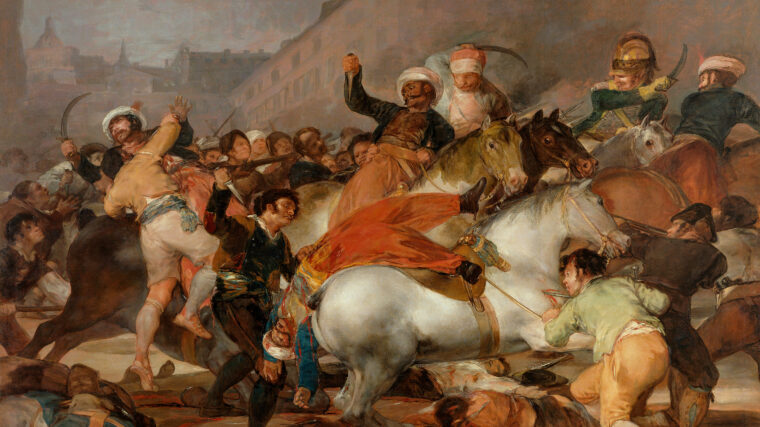
Napoleon Bonaparte
When French troops invaded Spain in the spring of 1808, one of the most captivated onlookers was neither a soldier nor a diplomat, but a painter—albeit, one of surpassing genius. Read more
Napoleon Bonaparte
Dashing hussars in beautifully braided dolmans and fur-lined pelisses; chasseurs in their brilliant green uniforms; the heavy cavalry of cuirassiers in their glistening breastplates, mounted on magnificent chargers; and the dragoons, wearing brass Grecian helmets with long, flowing manes of black horsehair—all magnificent in their martial and fashionable airs. Read more
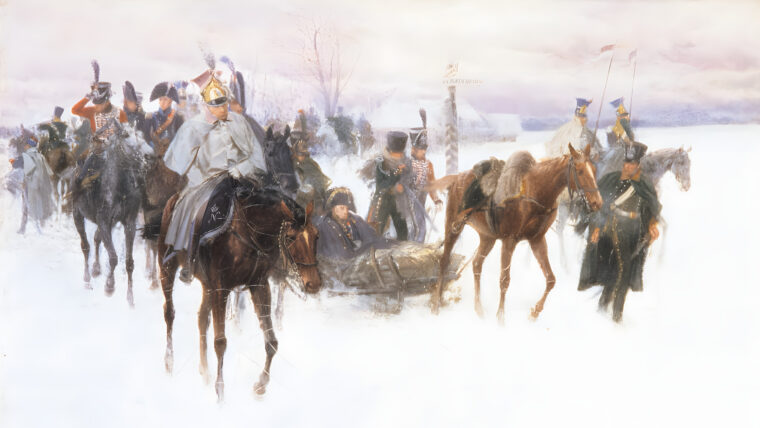
Napoleon Bonaparte
Napoleon Bonaparte’s Russian campaign of 1812 ranks as one of the worst military disasters in history. Only 50,000 men returned from an orginal 600,000, or of the 100,000 who marched into Moscow, less than 10,000 were to see France again. Read more
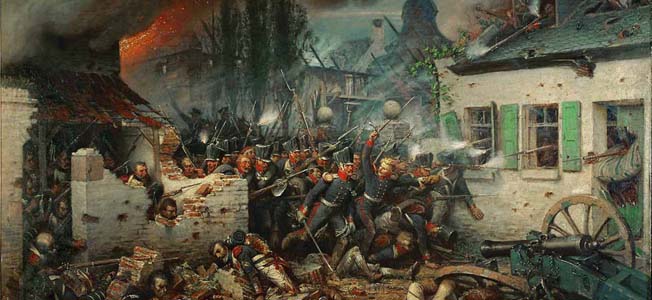
Napoleon Bonaparte
Two centuries after his catastrophic defeat, historians may well point to Napoleon Bonaparte’s supreme self-confidence as his worst enemy at the Battle of Waterloo, fought June 18, 1815. Read more